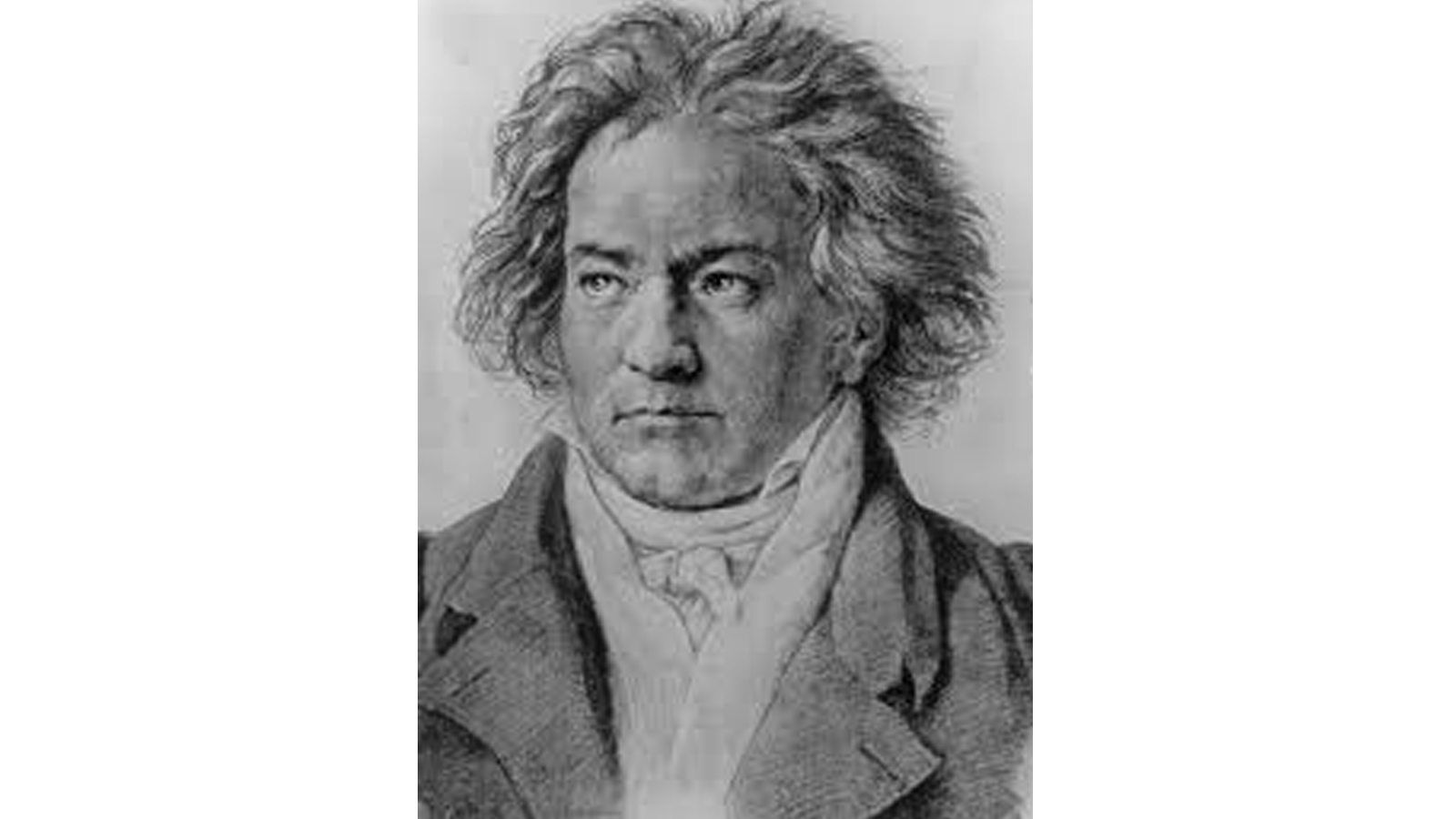
No. 2
Beethoven: Symphony No. 9 in D minor, Choral

Sometimes things work out perfectly. This Easter Day we arrive at No. 2 on the list, It's a piece that is usually designated as No. 1: BEETHOVEN's Symphony No. 9 in D minor, "Choral". This week at sometime I heard from the radio two sentences about Beethoven. The first was "Remember, Beethoven was rejected by everyone he tried to love." The second followed hard upon the first, "Even his beloved nephew rejected him." And it was an ultimate rejection; Carl attempted suicide.
I have no idea what it is to be bi-polar, but I have figured out that there was no middle ground in Beethoven's emotional life. He was a steady customer to prostitutes but so hopelessly idealistic about the women he fell in love with that he always failed to see that they were absolutely unavailable. And some part of him wanted it that way. It is the old Woody Allen joke in a new context why would I ever want to ally myself to a woman who would want me. The only place this paradoxical idealism worked for him (and for us) was when Beethoven wrote music. Then his expressions of love and idealism were divorced from his physical being. No where is this clearer than in his last symphony, the 9th.
Of the first three movements there is not one that isn't breathtaking in its conception and masterful in its execution. And, yet, in the transition to the last movement he rejects what has gone before as inadequate and introduces the choir to give voice to Schiller's "Ode to Joy". I have often thought this is just another strategy, that he doesn't really mean to "reject" the first three movements (after all he has made us listen to them), but to grab our attention for (as Monty Python would say) something entirely different. But I now think (at least for a few moments) that he does mean to set aside those first movements. Beethoven is almost entirely deaf at this point in his life, his means of personal communication are fraught with all kinds of difficulties. And as his social interactions become more and more strained, his music becomes more and more personal. We begin to perceive a unique Beethoven voice and manner that ranges wider and covers a greater degree of emotional states than any other composer before him. His music making, even his symphonies have become very personal, overtly so.
But at the end of the 9th, he doesn't want to engage in personal conversation anymore. He is aware that each listener enters into a private conversation with the music he writes The depth and nature of that conversation is largely dependent on the listener's own experience and aesthetic biases. But he wants now, at the end of this symphony to make something as clear as he can; he wants to wrest control of the musical conversation so you must listen to me. Hence the introduction of the choir. And the message could not be simpler or clearer; music as a gift of God is the key to achieving "Joy", not just personal joy or domestic bliss, but a societal, yea, a universal joy that leads to an embrace by millions of mutual love.
That's a great message to hear on an Easter, isn't it?
Top 40 Countdown
A few years ago the listeners to WNED Classical told us what they thought a TOP 40 list of Classical pieces should be. Six hundred and twenty-two different pieces were put forward, and over nine hundred listeners participated. The result, The WNED Classical Top 40, was both startling and comforting. There were a number of surprises, Stravinsky and Copland made the list; Mendelssohn and Schumann did not! It was comforting to know that the two most popular composers were Beethoven and J.S. Bach. The biggest surprise of all was the piece that crowned the list as No. 1.